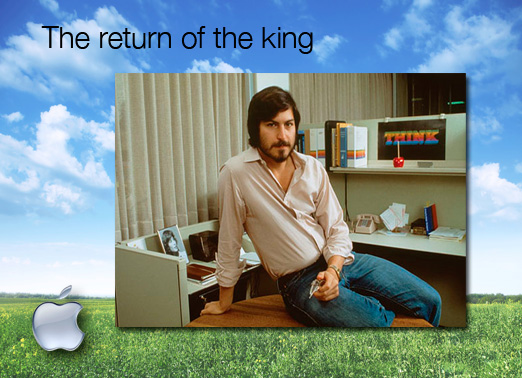Sending your IT business to the cloud comes with risk
Every tech company has its ups and downs, but Apple is more like a roller coaster. Yet Apple’s highs and lows are not so much about individual products as they are about attitudes and philosophies — the underlying causes of, say, both the iPad (triumph) and the Pippin (failure).
Here are Apple’s five greatest successes and most miserable failures. We’ll start with the failures first, just for fun.
by Dan Tynan
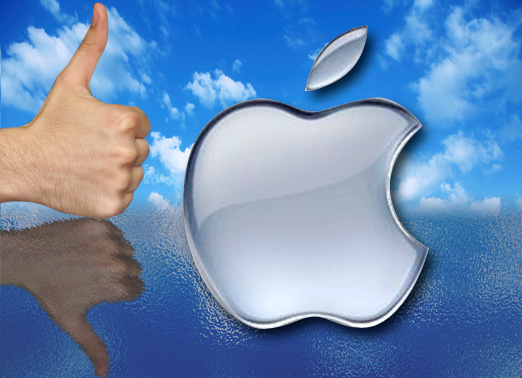
Apple’s worst failures: Design crimes
From the iMac to the iPad, Apple’s design sense has typically been synonymous with “sleek and sexy.” Sometimes, though, it gets a little carried away. Take for example the 1998 USB Mouse, aka “the hockey puck” — colorful, translucent, and… where’s that mouse button again? Or the 20th Anniversary Mac, a bronze-colored $7500 monstrosity meant to honor Apple’s 20th birthday in 1997 but ended up tarnishing it. Or the Power Mac G4 Cube: Beautiful to look at, assuming you got one that wasn’t cracked, but not all that useful unless you need a MacQuarium to hold your fish. Call it the 3F rule: When form triumphs over function, it usually leads to failure.
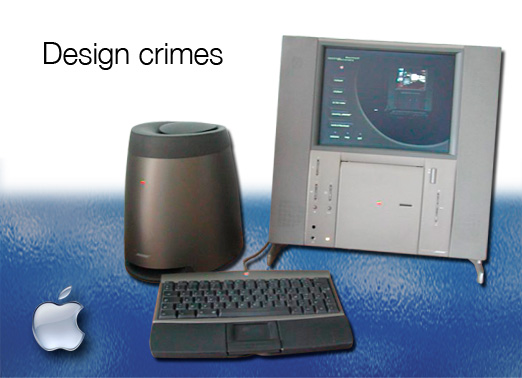
Apple’s worst failures: iWay or the Highway
In the Apple universe there’s only one way to do things: Steve’s way. Want to develop apps for the iPhone or iPad? You’ll have to meet Apple’s arbitrary and often contradictory standards. Want to use Flash in your app? Go talk to those Android people, they’ll take anything. You say your iPhone 4 keeps dropping calls? You must be holding it the wrong way. Sure that “tightly controlled ecosystem” Apple fan boys like to brag about leads to fewer technical snags, but Jobs’ obsession with control also drives the nonfaithful to the more free (if less reliable) world of Android.
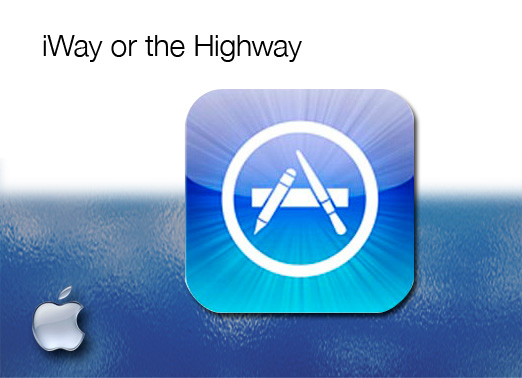
Apple’s worst failures: Bully tactics
Apple is like the mean kid on the playground who has all the cool toys. Cross him and he’ll get his goons to pummel you. Like, for example, the company’s heavy-handed pursuit of bloggers at Think Secret, AppleInsider, and PowerPage in 2004 and 2005, all of whom had the temerity to publish news about Apple products before the company had officially released them. (Imagine Apple trying to do the same thing today to the thousands of blogs that breathlessly repeat every iPhone rumor.) Or last year, when police raided the home of Gizmodo blogger Jason Chen after he got his hands on a lost iPhone 4 prototype. Court documents later revealed that Apple met with police and demanded they raid Chen’s house, claiming his blog post was “immensely damaging” to the company. But the only real damage was to Apple’s reputation.
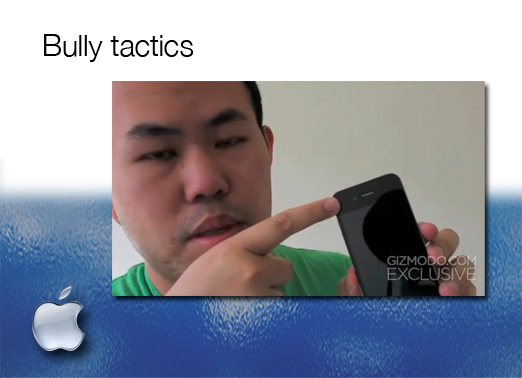
The MobileMe mishegas
If it was Apple’s desire to prove that it too was mortal, the MobileMe launch in June 2008 succeeded beyond its worst nightmares. The $99 a year service was supposed to bring Blackberry-style syncing of contacts, calendars, and email to the iPhone masses. Instead, it brought migraines and mockery, along with Email outages and a rare serving of humble pie to a company that thought it could convert its .Mac users to Mobile Me, release version 2.0 of the iPhone OS, activate thousands of new iPhone 3s, and open its brand new App Store — all in the same week. It couldn’t.
According to a recent report in Fortune magazine, the debacle earned the entire Mobile Me team a public tongue lashing from Papa Jobs: “You’ve tarnished Apple’s reputation…. You should hate each other for letting each other down.”
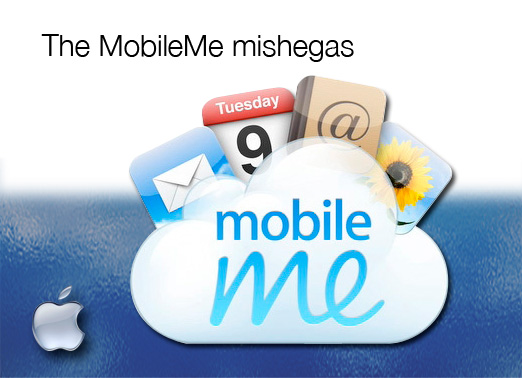
Apple’s worst failures: Going “professional”
It’s a typical pattern in the high-tech world: A start-up becomes wildly successful based on great technology, then proceeds to ease out the geeks who created that tech and bring in adult supervision. Often it works, but it almost killed Apple. Many of Apple’s least successful products — the Macintosh Portable, the Pippin, the Newton MessagePad, and the invasion of the Mac clones, to name but a few — occurred during this dark post/pre-Jobsian period. It’s a miracle the company survived.
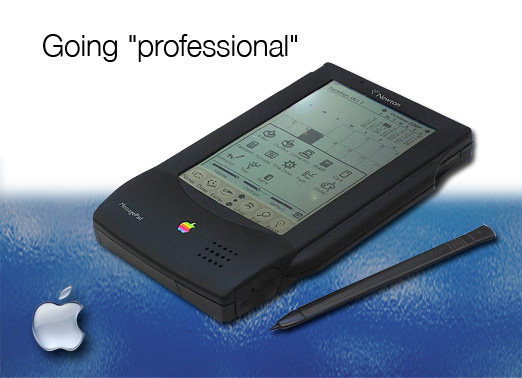
Apple’s greatest triumphs: Inventing the wheel
No, not that wheel (though frankly, we wouldn’t be surprised if Apple claimed a patent on it). We’re talking about the iPod click wheel. While by itself not the world’s most earth-shattering innovation, the click wheel ultimately led to the tapping/swiping touchscreen interface beloved by the iPhone faithful, says Austin O’Malley, executive vice president for R&D at CAD software maker SolidWorks.
“The iPod Classic’s click wheel allowed users to seamlessly filter thousands of songs with a few clicks,” he says. “Although it did not make the jump to Apple’s iPhone, the click wheel paved the way for users to become accustomed to convenience and depth at their fingertips.”
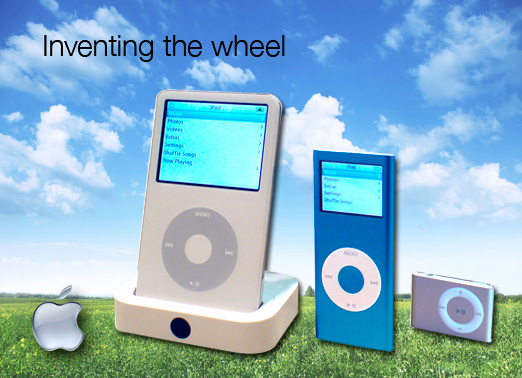
Apple’s greatest triumphs: Not becoming Microsoft
For decades, Microsoft has shamelessly tried to ape Apple; first the Windows GUI, then the Zune, and now Windows Phone 7. But Apple has wisely not tried to become Microsoft, with one disastrous exception — from 1995 to 1997 when it licensed the Mac OS to clone makers and tried to sell enterprise servers. Being the anti-Microsoft — focusing on consumer-friendly products, innovation instead of imitation, and quality instead of quantity — enabled Apple to not only survive but thrive. In fact, last April Apple surpassed Microsoft in profitability.
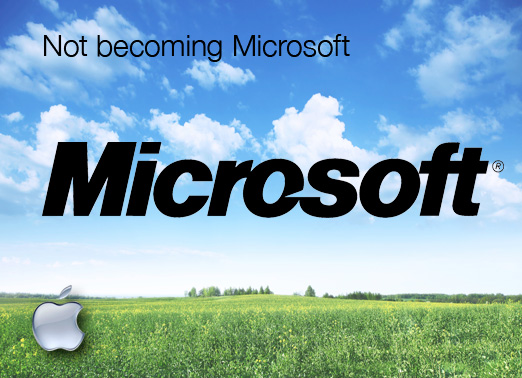
Apple’s greatest triumphs: Image management
Steve Jobs doesn’t understand who his users are, he understands who they imagine themselves to be. Hence the brilliance of Apple’s “I’m a Mac” ad campaign, or for that matter, “Think different.” Mac and Windows users really don’t think that differently, but these ads give Mac owners a reason to feel good about having paid more for their machines. Can anyone say that about the Bill Gates/Jerry Seinfeld commercials?
“Apple pioneered the practice of selling a computer based on how you use it and how sexy it is, rather than on the features it comes with,” notes David Brainer-Banker, a software engineer at eImagine Technology Group. “This may seem obvious now, but a decade or so ago most computer advertising revolved around megahertz, megabytes, and floating point units.”
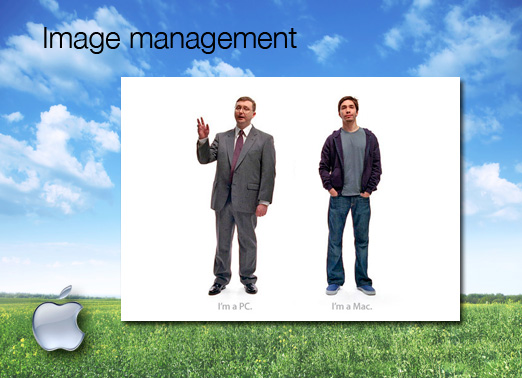
Apple’s greatest triumphs: Minding the store
The iPod was just another MP3 player before the iTunes Store came along in 2003 and dragged the music industry kicking and screaming into the 21st century. A few years later Apple did the same thing to Hollywood, bringing TV shows and full-length movies to the really small screen. Jobs’ ability to bend the music and movie industries to his will enabled the creation of a digital content economy that previously didn’t exist. The result? The Amazon Kindle Store, Netflix streaming, Hulu — and, of course, app stores for every mobile OS.
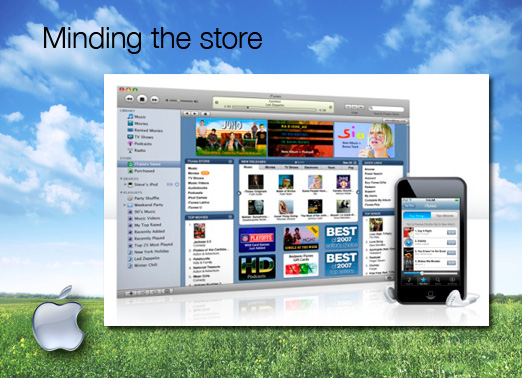
Apple’s greatest triumphs: The return of the king
You can imagine Facebook without Zuckerberg. Google would probably soldier on just fine without Larry and Sergey. Microsoft is arguably better without Gates (and probably will improve even more once Ballmer hits the highway). Without Jobs, though, Apple would be a footnote in the history of personal computing. Cast your mind back to the dark days of July 1997, before Jobs returned as “interim CEO.” Apple had just lost $1 billion on revenues of $7 billion. Its stock was trading at $4 a share. It was ripe for acquisition or even liquidation.
Last year Apple’s net profit exceeded $14 billion; it’s now trading north of $370 a share. The blogosphere does back flips breath every time Apple hints that it might introduce something new, while the rest of the tech world scrambles frantically to catch up. And Apple owes it all to the ruthless, dictatorial, painfully thin man in the black mock turtleneck.
